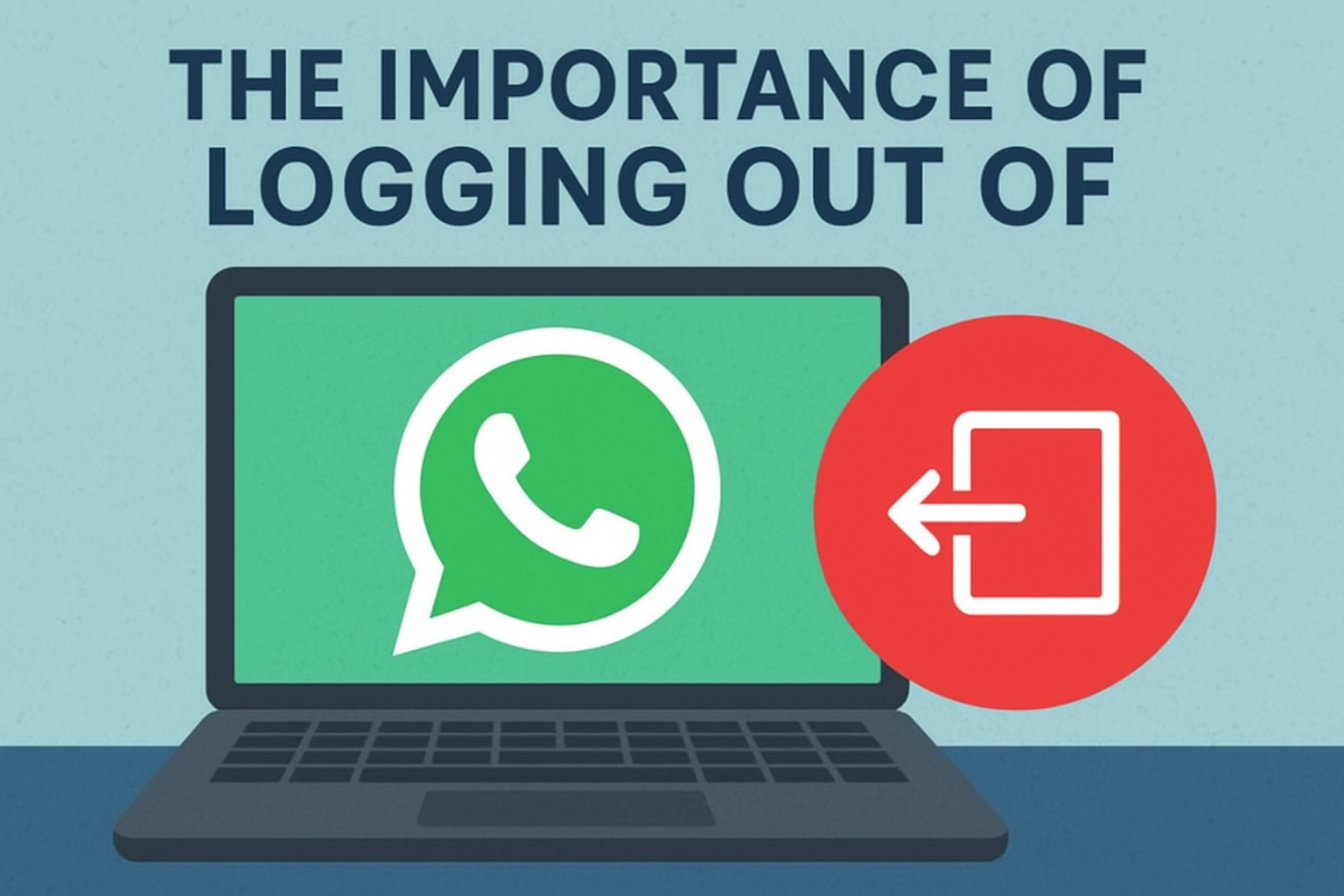The Importance of Logging Out of WhatsApp Web on Shared PCs
With access and convenience at the forefront in our connected world, access in many cases matters the most. For millions of us, WhatsApp Web has proved a lifesaver by bridging the social divide between smartphone and computer. If we scan a QR code in other words one can view all of our private chats, group meetings, media streams and more on a larger screen. But at the same time, the software presents a major security weakness if we download it to one or more computers shared by colleagues or on a public network. Just closing the browser tab doesn’t really do it justice; we all have to be physically ready to slam out of WhatsApp Web.
The Illusion of Security: Why Closing the Tab Isn’t Enough
Many users feel compelled to continue using their Internet browser just as they’re finished. That’s not the case for WhatsApp Web. The platform is designed to be persisted in its connection for ease of use. In that case, unless you explicitly log out, that browser is still running your session. And so anyone who wakes up next to the computer and clicks through to the page on WhatsApp Web can immediately go back in and see what you have without any further details other than your telephone number and password (or another QR code), and see everything you’ve chatted about, as well as all of the people talking in them now. So it is absolutely important that you properly end your session on Zap Web and any other web service.
The Risks of a Forgotten Session: What’s at Stake?
While you are logged in on a shared PC, e. g., at a library, in a department office or at an Internet café, there is a vast number of opportunities for people to log on and take over your personal and business communications. Users of the website can read, listen to and otherwise access your messages and contacts, view shared photos and videos, and access valuable documents that you and others have communicated with them over the internet. The next user can also impersonate you and send messages to contacts on the website that appear to be from you. This can lead to broken relationships, awkwardness and embarrassment of others, or money laundering if a contact is tricked into sending money.
Further, even if the shared computer is infected with malware, an active session on WhatsApp Web could be an opening for hackers they can watch your chats for information of value or spread malicious links through your account to your entire contact list, damaging your reputation and exposing your friends and family. The integrity of your account on Zap Web is only as strong as your last logout.
The Simple Solution: How to Properly Log Out
Luckily protecting yourself can be quick and simple – it’s just a few seconds longer than just closing the tab but saves you a whole lot of trouble. Here’s how to make sure you’re logged out entirely from any shared computer. On the WhatsApp Web page (in your browser), click on the 3-dot menu icon at the top left. From the dropdown menu, select the obviously red “Log out” option.
Confirm the action if prompted.
This definitive action will delete the connection between your account and that specific computer. The next person to visit the WhatsApp Web page will get a screen asking them to input a QR code, and will not be allowed to view your data. Making this an unchangeable habit is the single most effective way to use Zap Web safely on a device you do not exclusively own and control.
Beyond Logging Out: Additional Protective Measures
While logging out is more obvious, you have a slightly stronger defense. First, add two-step verification to your WhatsApp mobile app. This requires a PIN code each time your phone number gets re-registered on WhatsApp. This added security layer is quite hard to break even if somebody somehow manages to grab your session. Second, set up weekly check-ins for your existing sessions. On your mobile app, go to WhatsApp Web and view a list of all computers where your account is currently logged in. From there you can remotely log out of any device you don’t recognize or never used.
Conclusion
A well-written text is a vital, personal document containing the earliest, intimate bits of information we wish we could get our hands on. You don’t want someone stalking you while you use a laptop shared with your friends. Why not send your parents to school? Maybe your best friend should be your secret kissing partner. Speaking of trusted websites, one such site is Zap Web, and more. But what if you could actually get your own way, click the “Log out” button at all times? If you clicked the wrong button, whoever used it was going to get every one of your private messages.







